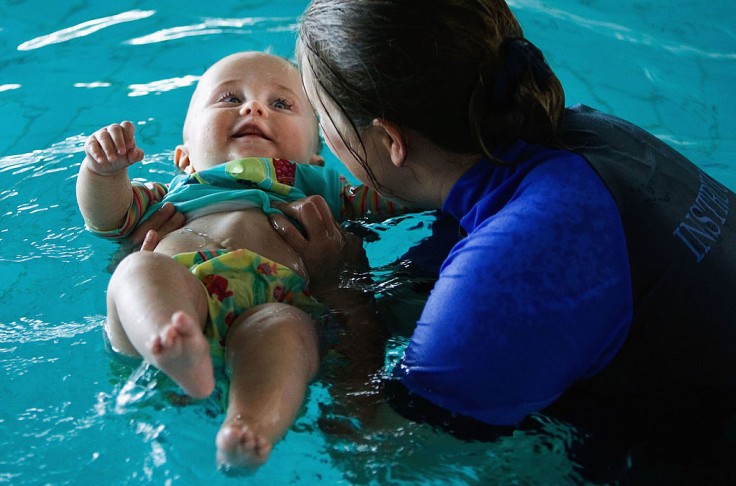
Baby sun safety is crucial to preventing sunburn, overheating, and long-term damage to their delicate skin.
In extremely hot weather, it becomes more challenging for babies and children to regulate their body temperature and stay comfortable.
Unlike adults, children's bodies heat up rapidly and are more susceptible to the effects of heat. They are also at a higher risk of overheating and experiencing heat-related illnesses.
Additionally, infants and young children have a limited ability to adapt to temperature changes and do not sweat as much as adults, which hampers their ability to cool down.
Furthermore, according to the Pregnancy, Birth, & Baby Organization, due to underdeveloped sweat glands, babies are prone to developing heat rash or prickly heat.
When the sun shines brightly, it's essential to protect your baby from the harmful effects of UV rays.
In this comprehensive guide, we'll provide you with essential tips and strategies to shield your little ones from the sun's harmful UV rays, ensuring their safety and well-being.
Essential Tips for Your Baby's Sun Safety
Dress Your Baby in Protective Clothing
As recommended by What To Expect, one of the most effective ways to shield your baby from harmful UV rays is to dress them in protective clothing. Opt for lightweight, loose-fitting garments that cover their arms and legs. Look for clothing with a tight weave that blocks out the sun. Additionally, choose a wide-brimmed hat that shades their face, neck, and ears. Remember to protect their delicate eyes with UV-protective sunglasses designed for infants.
Seek Shade during Peak Hours
Avoid exposing your baby to direct sunlight during peak hours, usually between 10 am and 4 pm, when the sun's rays are the strongest. Instead, seek shade under a tree, an umbrella, or a stroller canopy. Creating a shaded environment will help reduce their exposure to harmful UV rays, keeping them safe and comfortable.
Apply Baby-Safe Sunscreen
For babies older than six months, applying a baby-safe sunscreen is an essential part of their sun protection routine. Choose a broad-spectrum sunscreen with an SPF of 30 or higher, specifically formulated for infants. Apply sunscreen generously to all exposed areas of your baby's skin, including the face, neck, hands, and feet. Reapply every two hours or more frequently if your baby has been sweating or exposed to water.
Be Mindful of Heat and Hydration
According to Children's Health, in addition to UV rays, heatwaves can pose risks to your baby's well-being. Babies are more susceptible to overheating, which can lead to dehydration and other heat-related illnesses. Keep your baby cool and comfortable by dressing them in lightweight, breathable clothing and using a stroller with proper ventilation. Offer frequent feedings to ensure they stay hydrated, and never leave your baby unattended in a hot vehicle.
Use Protective Accessories
In addition to clothing and sunscreen, consider using other protective accessories to enhance your baby's sun safety. Utilize a stroller sunshade or attach a clip-on umbrella to their stroller for added shade. Use a breathable, lightweight blanket to cover their legs or stroller when necessary. These accessories provide additional layers of protection against harmful UV rays.
Educate Yourself on UV Index
The UV Index is a measurement of the intensity of UV radiation from the sun. Check the local UV Index forecast before heading outside with your baby. When the UV Index is high, take extra precautions and limit your baby's exposure to the sun. Plan outdoor activities in the morning or late afternoon when the UV rays are less intense.
Take Breaks
During hot and sunny days, take regular breaks in shaded areas to allow your baby's body to cool down. This helps prevent overheating and reduces the risk of heat-related illnesses.
Protecting your baby from harmful UV rays requires a combination of precautions and proactive measures.
Remember to use baby sunshades or umbrellas, be cautious around reflective surfaces, check the UV Index, stay hydrated, take breaks in shaded areas, consider sun protective swimwear, and be mindful of medications that may increase sun sensitivity.
With these comprehensive strategies, you can ensure your little one stays safe and protected from the sun's harmful UV rays.